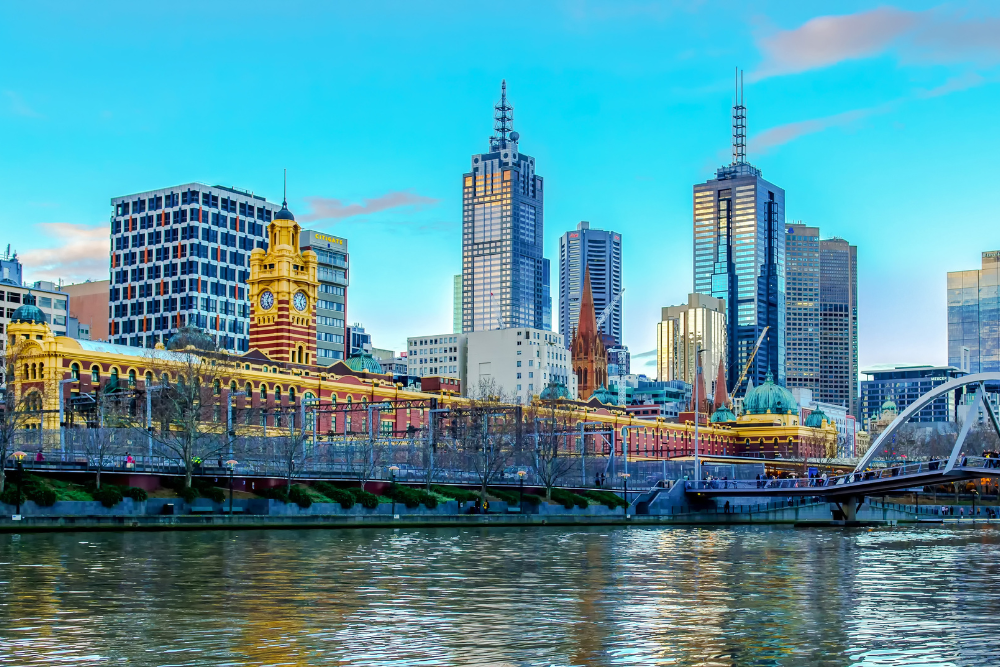Australia is renowned for its breathtaking landscapes, unique wildlife, and vibrant cultures. However, with the increasing popularity of travel, the impact on the environment is significant. Sustainable travel practices are essential for preserving Australia’s natural beauty and ensuring that future generations can enjoy its wonders. This guide will provide you with eco-friendly tips for traveling in Australia, helping you minimize your environmental footprint while exploring this stunning country.

1. Understanding Sustainable Travel
What is Sustainable Travel?
Sustainable travel refers to making choices that protect the environment, respect local cultures, and contribute to the economic well-being of the destinations you visit. It involves being mindful of your impact on the places you travel to and making conscious efforts to reduce it.
Why is Sustainable Travel Important in Australia?
Australia is home to diverse ecosystems, including the Great Barrier Reef, rainforests, and unique wildlife. Sustainable travel helps protect these environments from degradation, ensuring they remain intact for future generations to enjoy. Additionally, promoting eco-friendly tourism supports local communities and economies, fostering cultural exchange and understanding.
2. Eco-Friendly Transportation Options
Public Transportation
Using public transportation is one of the best ways to reduce your carbon footprint while traveling in Australia. Most major cities have efficient public transport systems that include buses, trains, and trams.
- Cities to Explore: Sydney, Melbourne, and Brisbane offer extensive public transport networks, making it easy to navigate without relying on cars.
- Benefits: Public transportation reduces traffic congestion and air pollution, providing an eco-friendly alternative to driving.
Biking and Walking
Many Australian cities are becoming more bike-friendly, offering dedicated bike lanes and rental services.
- Bike Rentals: Consider renting a bike to explore urban areas like Melbourne’s bike paths or the scenic coastal routes in Sydney.
- Walking Tours: Walking is an excellent way to experience local neighborhoods, markets, and parks while minimizing your environmental impact. Look for guided walking tours that highlight sustainability.
Carpooling and Ridesharing
If you need to travel longer distances, consider carpooling or using ridesharing services like Uber or Lyft.
- Reduce Emissions: Sharing rides with fellow travelers or locals reduces the number of vehicles on the road and decreases carbon emissions.
3. Choose Eco-Friendly Accommodations
Green Hotels and Eco-Lodges
When selecting accommodations, look for hotels and lodges that prioritize sustainability.
- Eco-Certifications: Seek out establishments with eco-certifications like EcoSmart or Green Globe. These certifications indicate that the property adheres to sustainable practices.
- Features to Look For: Many eco-friendly hotels implement energy-efficient lighting, water-saving fixtures, and recycling programs. Some also use renewable energy sources like solar power.
Sustainable Practices
- Support Local Communities: Choose accommodations that employ local staff and support local businesses. This helps to create jobs and keep money within the community.
- Mindful Behavior: Practice sustainable habits during your stay, such as reusing towels, minimizing water usage, and using public transport to explore the area.
4. Participate in Eco-Friendly Activities

Wildlife Conservation Experiences
Australia is famous for its unique wildlife, and many organizations offer eco-friendly tours focused on conservation.
- Wildlife Sanctuaries: Visit accredited wildlife sanctuaries like the Australia Zoo or Taronga Zoo, which emphasize animal welfare and conservation efforts.
- Volunteer Opportunities: Participate in volunteer programs that focus on wildlife rehabilitation or habitat restoration. These experiences allow you to contribute positively to local ecosystems.
Nature-Based Activities
Embrace Australia’s natural beauty by engaging in eco-friendly outdoor activities.
- Hiking and Nature Walks: Explore national parks like Kakadu, Blue Mountains, or Grampians. Many parks have designated trails, allowing you to experience the beauty of the Australian wilderness without damaging the environment.
- Snorkeling and Diving: If you plan to visit the Great Barrier Reef, consider eco-friendly snorkeling or diving tours that follow sustainable practices and educate participants about coral preservation.
5. Reduce Plastic Waste

Bring Your Own Reusable Items
One of the simplest ways to reduce plastic waste while traveling is to bring your own reusable items.
- Reusable Water Bottle: Australia has a great tap water supply, making it easy to refill your water bottle instead of buying single-use plastic bottles.
- Reusable Bags: Bring your own reusable shopping bags for grocery shopping or beach days to avoid plastic bags.
Avoid Single-Use Plastics
Many cafes and restaurants are adopting policies to reduce single-use plastics. However, it’s essential to be mindful as a traveler.
- Say No to Straws: Opt for drinks without straws or bring your own reusable straw.
- Choose Eco-Friendly Takeaway: When ordering takeout, ask for eco-friendly packaging options, and consume meals on-site whenever possible.
6. Support Local Culture and Economy
Eat Local and Seasonal
One of the best ways to experience Australia is through its food culture. Opt for local and seasonal ingredients to support local farmers and reduce food miles.
- Farmers’ Markets: Visit local farmers’ markets to sample fresh produce and artisanal products. This not only supports local farmers but also reduces the carbon footprint associated with transporting food.
- Sustainable Restaurants: Look for restaurants that emphasize sustainable sourcing, such as using locally grown ingredients and sustainable seafood.
Engage with Indigenous Culture
Respecting and engaging with Australia’s Indigenous cultures can provide a deeper understanding of the land and its history.
- Cultural Experiences: Participate in cultural tours led by Indigenous guides to learn about their traditions, art, and connection to the land.
- Support Indigenous Businesses: Buy Indigenous art and crafts from local artisans to support their communities and preserve their cultural heritage.
7. Leave No Trace Principles
When exploring Australia’s natural wonders, it’s crucial to follow Leave No Trace principles to minimize your impact.
Practice Responsible Tourism
- Stay on Designated Trails: Stick to marked paths to protect native flora and fauna. Venturing off-trail can damage sensitive ecosystems.
- Pack Out What You Pack In: Always dispose of your waste properly, and if you see litter, pick it up to help keep the environment clean.
Respect Wildlife
When encountering wildlife, observe from a distance and avoid feeding them. This helps maintain their natural behavior and prevents dependency on human food sources.
8. Plan for Sustainable Travel

Off-Peak Travel
Consider traveling during the off-peak season to reduce overcrowding at popular attractions.
- Benefits: Traveling during quieter times can enhance your experience, allowing for a more peaceful exploration of natural and cultural sites.
Research and Plan Ahead
Before your trip, research sustainable practices and initiatives in the areas you plan to visit. Many tourism boards provide resources for eco-friendly travel, helping you make informed decisions.
9. Contribute to Conservation Efforts
Donations and Fundraising
If you’re passionate about environmental conservation, consider donating to organizations working to protect Australia’s unique ecosystems.
- Charitable Organizations: Research reputable conservation organizations that focus on wildlife protection, habitat restoration, and environmental education.
Participate in Eco-Tourism
Choose eco-tourism companies that contribute a portion of their profits to conservation efforts. This allows you to enjoy unique experiences while supporting important initiatives.
Conclusion
Sustainable travel in Australia is not only possible but also rewarding. By making conscious choices about transportation, accommodations, and activities, you can minimize your environmental impact and contribute positively to the places you visit. Embrace eco-friendly practices, support local communities, and respect the breathtaking landscapes and diverse wildlife that make Australia a unique destination. With a commitment to sustainability, you can enjoy the wonders of Australia while helping to preserve its beauty for future generations.












